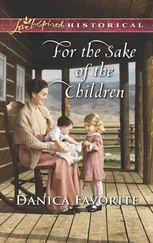Elizabeth George - For the Sake of Elena
Здесь есть возможность читать онлайн «Elizabeth George - For the Sake of Elena» весь текст электронной книги совершенно бесплатно (целиком полную версию без сокращений). В некоторых случаях можно слушать аудио, скачать через торрент в формате fb2 и присутствует краткое содержание. Жанр: Детектив, на английском языке. Описание произведения, (предисловие) а так же отзывы посетителей доступны на портале библиотеки ЛибКат.
- Название:For the Sake of Elena
- Автор:
- Жанр:
- Год:неизвестен
- ISBN:нет данных
- Рейтинг книги:4 / 5. Голосов: 1
-
Избранное:Добавить в избранное
- Отзывы:
-
Ваша оценка:
- 80
- 1
- 2
- 3
- 4
- 5
For the Sake of Elena: краткое содержание, описание и аннотация
Предлагаем к чтению аннотацию, описание, краткое содержание или предисловие (зависит от того, что написал сам автор книги «For the Sake of Elena»). Если вы не нашли необходимую информацию о книге — напишите в комментариях, мы постараемся отыскать её.
For the Sake of Elena — читать онлайн бесплатно полную книгу (весь текст) целиком
Ниже представлен текст книги, разбитый по страницам. Система сохранения места последней прочитанной страницы, позволяет с удобством читать онлайн бесплатно книгу «For the Sake of Elena», без необходимости каждый раз заново искать на чём Вы остановились. Поставьте закладку, и сможете в любой момент перейти на страницу, на которой закончили чтение.
Интервал:
Закладка:
He got out of the car and shrugged into his overcoat. The fog, he noted, managed to obscure and romanticise features of the house that spoke of a growing indifference and neglect. In lieu of a garden, a semi-circular driveway of leaf-strewn pebbles curved round the front door, and the inner part of the semicircle comprised an overgrown flowerbed which was separated from the street by a low, brick wall. Here, nothing had been done to prepare the ground for autumn or winter, so the remains of summer plants were lying blackened and dying against a solid sheet of unturned soil. A large hibiscus was fast overpowering the garden wall, trailing among the yellowed leaves of narcissi which should long ago have been cleared away. To the left of the front door an actinidia had worked its way up to the roof and was sending out tendrils to cover one of the lower windows, while to the right of the door, the same species of plant was creating an inert mound of disease-spotted leaves. As a result, the front of the house bore a lopsided appearance at odds with the symmetry of its design.
Lynley passed beneath a birch at the edge of the drive. From a neighbouring house, he could hear faint music, and somewhere in the fog a door slammed like the crack of a pistol shot. Sidestepping an overturned large-wheeled tricycle, he mounted the single step to the porch and rang the bell.
Its noise was answered by the shouting of two children who raced to the front door with the accompanying clatter of some sort of popping toy. Hands which could not yet successfully manage the doorknob pounded frantically instead on the wood.
“Auntie Leen!” Either the boy or the girl was doing the shouting. It was difficult to tell.
A light went on in the room to the right of the front door, sending an insubstantial oblong of illumination onto the driveway through the mist. A baby began crying. A woman’s voice called out, “Just a moment.”
“Auntie Leen! Door!”
“I know, Christian.”
Above his head, the porchlight went on, and Lynley heard the sound of the deadbolt turning. “Step back, darling,” the woman said as she opened the door.
The four of them were framed by the architrave, and held in a sideways diffusion of gold light from the sitting room that would have done credit to Rembrandt. Indeed, just for a moment, they looked very much like a painting, the woman in a rose cowl-necked sweater against which she held an infant wrapped in a cranberry shawl while two toddlers clutched the legs of her black wool trousers, a boy with a misshapen bruise beneath his eye and a girl with the handle of some sort of wheeled toy in her hand. This, apparently, was the source of the popping sound Lynley had heard, for the toy was domed in transparent plastic and when the child pushed it along the fl oor, coloured balls fl ew up and hit the dome like noisy bubbles.
“Tommy!” Lady Helen Clyde said. She took a step back from the door and urged the two children to do the same. They moved like a unit. “You’re in Cambridge.”
“Yes.”
She looked over his shoulder as if in the expectation of seeing someone with him. “You’re alone?”
“Alone.”
“What a surprise. Come in.”
The house smelled strongly of wet wool, sour milk, talcum powder, and nappies, the odours of children. It was filled with the detritus of children as well, in the form of toys strewn across the sitting room fl oor, storybooks with torn pages gaping open on the sofa and chairs, discarded jumpers and playsuits heaped on the hearth. A stained blue blanket was bunched onto the seat of a miniature rocking chair, and as Lynley followed Lady Helen through the sitting room into the kitchen at the rear of the house, the little boy ran to this, grabbed it, and clutched it. He peered at Lynley with defi ant curiosity.
“Who’s he, Auntie Leen?” he demanded. His sister remained at Lady Helen’s side, her left hand fixed like an extra appendage to her aunt’s trousers while her right hand made the climb to her face and her thumb found its way into her mouth. “Stop that, Perdita,” the boy said. “Mummy says not to suck. You baby.”
“Christian,” Lady Helen said in gentle admonition. She guided Perdita to a child-sized table beneath a window where the little girl began to rock in the tiny ladder-back chair, her thumb in her mouth, her large dark eyes fi xed with what looked like desperation on her aunt.
“They’re not dealing with a new baby sister very well,” Lady Helen said quietly to Lynley, shifting the crying infant to her other shoulder. “I was just taking her up to be fed.”
“How’s Pen doing?”
Lady Helen glanced at the children. The simple look said it all. No better.
She said, “Let me take the baby up. I’ll be back in a moment.” She smiled. “Can you manage?”
“Does he bite?”
“Only girls.”
“That’s a comforting thought.”
She laughed and went back through the sitting room. He heard her footsteps on the stairs and the sound of her voice as she murmured to the baby, gentling its cries.
He turned back to the children. They were twins, he knew, just over four years old, Christian and Perdita. The girl was older by fifteen minutes, but the boy was larger, more aggressive, and, from what Lynley could see, unlikely to respond to friendly overtures from strangers. That was just as well, considering the times in which they lived. Nonetheless, it didn’t make for a comfortable situation. He had never been at his best with toddlers.
“Mummy’s sick.” Christian accompanied this announcement by bashing his foot into the door of a kitchen cupboard. One, two, three savage little kicks, whereupon he discarded his blanket on the floor, opened the cupboard, and began pulling out a set of copper-bottomed pots. “The baby made her sick.”
“That happens sometimes,” Lynley said. “She’ll get better soon.”
“ I don’t care.” Christian pounded a pan against the floor. “Perdita cries. She wet the bed last night.”
Lynley glanced at the little girl. Curly hair tumbling into her eyes, she rocked without speaking. Her cheeks worked in and out round her thumb. “She didn’t mean to, I imagine.”
“Daddy won’t come home.” Christian selected a second pan which he banged unmercifully into the first. The noise was teeth-jarring, but it didn’t seem to bother either one of the children. “Daddy doesn’t like the baby. He’s cross with Mummy.”
“What makes you think that?”
“I like Auntie Leen. She smells good.”
Here, at least, was a subject about which they could converse. “She does indeed.”
“You like Auntie Leen?”
“I like her very much.”
Christian seemed to feel this planted the seeds of friendship between them. He scrambled to his feet and shoved a pot and its cover into Lynley’s thigh.
“Here,” he said. “You do this way,” and he demonstrated his skill at noise-making by slamming another cover onto a pot of his own.
“Really, Tommy! Are you encouraging him?” Lady Helen closed the kitchen door behind her and went to rescue her sister’s pots and pans. “Sit with Perdita, Christian. Let me get your tea.”
“No! I play!”
“Not at the moment, you don’t.” Lady Helen detached his fingers from the handle of a pot, lifted him up, and carried him to the table. He kicked and squalled. His sister watched him, round-eyed and rocking. “I’ve got to get their tea,” Lady Helen said to Lynley over Christian’s wailing. “He won’t settle till he’s eaten.”
“I’ve come at a bad time.”
She sighed. “You have.”
He felt his spirits sink. She knelt and began gathering the pots from the fl oor. He joined her. In the unforgiving kitchen light, he could see how pale she was. The natural blush of colour was faded from her skin, and there were faint smudges like newly bruised fl esh beneath her eyes. He said, “How much longer will you be here?”
Читать дальшеИнтервал:
Закладка:
Похожие книги на «For the Sake of Elena»
Представляем Вашему вниманию похожие книги на «For the Sake of Elena» списком для выбора. Мы отобрали схожую по названию и смыслу литературу в надежде предоставить читателям больше вариантов отыскать новые, интересные, ещё непрочитанные произведения.
Обсуждение, отзывы о книге «For the Sake of Elena» и просто собственные мнения читателей. Оставьте ваши комментарии, напишите, что Вы думаете о произведении, его смысле или главных героях. Укажите что конкретно понравилось, а что нет, и почему Вы так считаете.












